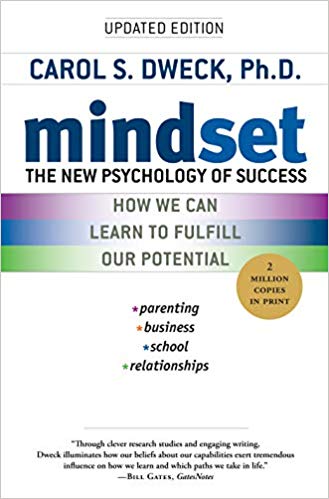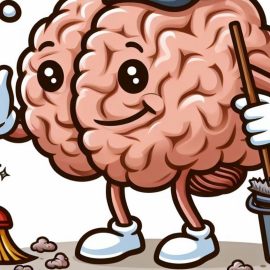

This article is an excerpt from the Shortform summary of "Mindset" by Carol Dweck. Shortform has the world's best summaries of books you should be reading.
Like this article? Sign up for a free trial here .
To instill in children the value of hard work, we teach them such stories as “The Tortoise and the Hare” and “The Little Engine That Could.” The lesson is to keep trying and you’ll succeed: Slow and steady wins the race.
But those with fixed mindsets take away a different lesson: Hard work is for those who lack talent. They’d rather be the faster, more talented hare than the tortoise, who only succeeded because the hare messed up. A smarter hare would beat a no-talent tortoise.
We’ll cover why fewer and fewer people believe in the value of hard work, and why this belief is absolutely crucial for success in life.
The Value of Hard Work
Stories like “The Tortoise and the Hare” suggest an either/or dynamic: you have talent or you put in a lot of hard work. Author Malcolm Gladwell has suggested that society values accomplishment that seems effortless over achievement through work and practice. We like superheroes with extraordinary abilities to easily surmount obstacles.
The downside of this belief can be costly. A Duke University study found anxiety and depression among female students who aspired to “effortless perfection” in appearance and in their academics. In contrast, growth-minded people believe that no one is perfect. No matter how talented you are, you have to work and improve to fulfill your potential.
Hard Work is Risky for Fixed-Minded People
If you believe you’re supremely talented and you don’t believe in the value of hard work, you have more to lose by trying than untalented people have. Effort is scary for people with a fixed mindset because:
- Geniuses aren’t supposed to need effort.
- If you apply effort and failure, you don’t have any excuses. But if you didn’t try and failed, you can say, “I could have done (X).”
Nadja Salerno-Sonnenberg, a talented young violinist who debuted at age ten with the Philadelphia Orchestra, almost derailed her career when she reached Juilliard and refused to expend any effort out of fear of failing. When she arrived there and faced stiff competition, she lost confidence. She had many bad habits, including the way she held her violin, but she wouldn’t change them. She stopped bringing her violin to lessons until the teacher confronted her. Afraid of losing the teacher, she made a turnaround and trained seriously for a competition, which she won, having learned the value of hard work.
Fear of effort can stymie relationships too. For example, a woman who was accustomed to short-lived relationships with inconsiderate boyfriends was unsettled when she started dating a considerate man. She really liked him but feared putting effort into the relationship because she’d be a failure if it didn’t work out. So she didn’t take the risk and lost out on a potentially rewarding relationship. Growth-minded people understand the value of hard work in relationships–chemistry alone can’t make relationships successful.
For a growth-minded person, failure is not making the effort to pursue something you really want. Tennis great Billie Jean King said that when you look back on your life, you can say one of only two things: “I gave my all” or “I could have been…” Growth-minded people believe in giving their all. They know the value of hard work.
Q&A: The Value of Hard Work and Mindsets
Why do fixed-mindset people feel they must prove their superiority repeatedly — isn’t once enough?
New and bigger challenges are always coming up. Yesterday’s performance may not be good enough today. The baseball you play in the minor leagues isn’t the same level of baseball you need to play in the majors. Even though you’ve proven your ability before, you’ll keep finding yourself in the position of having to do it again. The only way to break the cycle is with a growth mindset that embraces the value of hard work and the risk of failure.
When people fail, is it their fault for not trying hard enough?
People can fail through no fault of their own — maybe they had fewer advantages, such as resources, a strong support system, or educational opportunities, than the next person. Those with the most resources and the fewest hurdles usually have the greatest chance of succeeding in their efforts. Those facing hurdles such as illness or financial setbacks can be sidetracked more easily. Hard work is important, but it isn’t the only thing.
Workaholics seemingly have a fixed mindset, yet they put in a lot of effort despite the risk of failure. Does that mean they’re not really fixed-minded?
Generally, people with fixed mindsets prefer to succeed through ability rather than effort. But they may be willing to expend great effort for long-term goals. Also, they may not share every fixed-mindset belief, for instance that smart people don’t need to apply effort. However, they may have other fixed mindset beliefs such as feeling superior and not tolerating criticism.
If you’re comfortable with a fixed mindset — with your abilities and performance — why should you change?
No one has to change. But you have the choice of changing your fixed mindset if it’s not serving you well — for instance, if you’re miserable because you feel like a failure. You may also be depriving yourself of opportunities for success in new areas by not trying something new. In the areas where you’re comfortable, you may find that relying on talent without effort has limits — it takes you only so far. Understanding the value of hard work will take you further.
Do people with fixed mindsets avoid challenge simply because they lack confidence?
People with fixed mindsets can have as much confidence as growth-minded people have to start out with. But fixed-mindset people can lose confidence when they have setbacks. When that happens, like John McEnroe, they feel the need to protect their confidence and self-image by blaming and making excuses for failures.
People with growth mindsets don’t really need confidence to try something challenging or new because their goal is learning rather than validation. Teen golfer Michelle Wie wanted to learn what it was like to play in a tournament against the best players. So she entered a PGA tournament against the best male players. She learned she could play at that level, although she needed to improve.
Change Your Mindset: Tips for Valuing Hard Work
- A fixed mindset can undercut your enjoyment of learning. Did you ever enjoy something for a while and then want to quit when it started to seem more difficult? You were probably in a fixed mindset. Create a growth mindset by imagining your brain growing by forming new connections as you keep learning.
- It feels great to be around people who think we’re perfect, or who don’t question or criticize us. Many of us would rather avoid negative feedback — but give yourself an opportunity to grow by asking someone for constructive criticism.
- Do you give up and withdraw when you feel depressed? Next time, try to put yourself in a growth mindset by doubling down when things are difficult. View effort as an asset and know the value of hard work.
———End of Preview———

Like what you just read? Read the rest of the world's best summary of "Mindset" at Shortform . Learn the book's critical concepts in 20 minutes or less .
Here's what you'll find in our full Mindset summary :
- The difference between a growth and a fixed mindset
- How a fixed mindset keeps you back throughout your life: education, relationships, and career
- The 7 key ways to build a growth mindset for yourself






